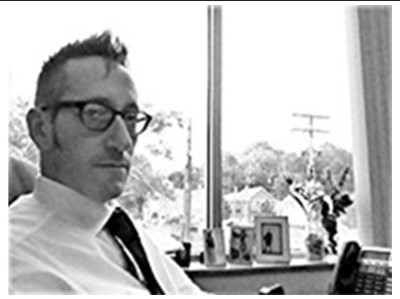By MICHAEL DAVIDOW, Radio Free New Hampshire
In researching my last column, I learned that New Hampshire’s primary has been on the chopping block before. They came for us in the 1970’s, for instance, and not because we lacked diversity. They came for us back then because the Democrats were sick of William Loeb.
There are people alive today, even in Manchester, who don’t remember William Loeb. I am not one of them. My memories of him are hazy because they come from my childhood, and they are colored more strongly by how my father felt about him than anything that I personally felt. But those memories are strong enough that I still hesitate to read the Union Leader, even for the sports page. That’s the power of imagination.
The Leader was a going concern when Loeb first appeared here, as well respected as any other newspaper of its size and prominence. It had a solid and respectable history (it had been owned by Frank Knox, who had served as a Republican in Roosevelt’s wartime cabinet), and it was the only paper in all of New Hampshire with a state-wide reach. One of Loeb’s early partners helped convince Eisenhower to run for office (Leonard Finder, rest in peace).
Once he managed to obtain sole control over it, though, the Leader became a different beast. Loeb used its front page like a cudgel. He spewed personal invective. He twisted the news itself. He was not only crude to the politicians he hated; he went after their families too.
Though posing as both a loyal Republican and a stalwart conservative, he was far from either of those things. Our state’s Republican party had an uneasy truce with him, often broken and never reliable. He turned on his favorites regularly. He slammed both individuals and institutions; at different times he attacked the state university, the Catholic church, the Kennedy family, Eisenhower, and Nixon.
Of note, he was not even from New Hampshire. He came from Long Island, from privilege and wealth. He lived variously in Vermont, Nevada, and Massachusetts. His ambitions always seemed to drive him away from New Hampshire, in fact; he made feints at both Boston and New York. But it was in this state that he held all his power, and therefore it was here that he made people suffer.
He openly rewarded his friends, brazenly punished his enemies, and otherwise pursued his own personal interests at every conceivable turn. Among those interests: becoming a national power broker and using our primary to do so. Hence that old-time opposition to our keeping it, because Loeb had few friends outside of his own sandbox.
Though he could never deliver as many actual votes as people thought– maybe fifteen or twenty thousand at the peak of his influence– those numbers loomed large in a place like this. And perhaps more importantly, people feared him. While many actively opposed him, more chose not to cross him. They didn’t want the burden of it. They turned a blind eye. Others did worse. They hitched their ambitions to his wagon and drove as far as they could. An entire generation of politicians in New Hampshire came away tainted from their willful association with a loathsome, rabid, ranting man; and those politicians gave rise to others, and so on, until today.
I suppose Loeb was not the first of his kind. I suppose he modeled himself after even bigger thugs, newspapermen who had made their nut from trashing the New Deal, like Robert McCormick of the Chicago Tribune. And I suppose that McCormick had modeled himself after William Randolph Hearst. That doesn’t make it any better. It’s just good to know where this sort of sadness comes from, so you can have some sense of its natural trajectory.
These men may be forgotten now, but the stain still lingers. A bully with a public voice, caring only about himself, sustained by attention from others, using his vast influence to destroy whatever stands between him and his own emotional needs: before Twitter, before the internet, before cable news. Loeb was a proto-Trump. Like a virus that jumped from animals to people, his brand of rabble-rousing finally crossed over from yellow journalism to populist politics. The rot goes deep.
Anyway, people of good will hated this man so much that they once wanted to take away our primary. They should have done it then, because it made sense in that context. Doing it now is just another power play.
Davidow writes Radio Free New Hampshire for InDepthNH.org. He is also the author of Gate City, Split Thirty, and The Rocketdyne Commission, three novels about politics and advertising which, taken together, form The Henry Bell Project, The Book of Order, and The Hunter of Talyashevka . They are available on Amazon and Barnes and Noble. Davidow’s Chanukah Land can be found here.





